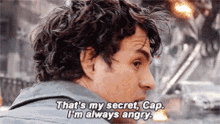
Mental health is hard
A new podcast I’m enjoying is Decoder from the Verge - it dives into the mechanics of things I’m interested in the way I like, with details and hard questions. Since I’m into tech and business, and it does a very good job finding interesting and timely subjects to dissect from those worlds, it’s been very enjoyable to take in.
A lot of interviews naturally involve interviewing CEOs and founders, and the host frequently asks one particularly interesting question: how do you make decisions?
Reflecting on how you make decisions is a good exercise, although I’m not sure I love the answer I’ve come up with. Broadly speaking, I think the right answer is always some form of ‘with conviction’, but what that means to any particular person could be quite different.
I spent a number of years working in criminal defence and learning from a couple of older lawyers who were excellent at what they did, but interestingly had very different styles. Where one was very calm and methodical, the other almost seemed to need to whip himself into an emotional frenzy in order to achieve clarity and conviction on any given issue. You can imagine how different their styles of cross-examination were.
The former guy, with his calm and methodical style, seems on balance to me like probably the better and healthier approach. Unfortunately, the more I learn about myself and reflect on how I’ve made big decisions throughout my life, the more I realize I’m the latter.
If I had to sum up how I make difficult decisions, it would be: “First Principles and Horseshit.”
First Principles & Horseshit
For much of my life, I skated by on talent and my social skills. Effort and hard-work were unfortunately lacking.
In my twenties, and particularly once I began practicing criminal law, I had it beat into me that I needed to change that, and I did. Arguably, I over-corrected.
I am now very mechanical and methodical in how I approach things. I have to build arguments, positions, and projects from the grounds up, even where that seems silly. I have to build up from first principles. In many cases, that proves to be (a) unnecessary, (b) frustrating, and (c) a waste of my and others’ time. But it’s how I’ve learned to do things, and I feel uneasy any other way. And that’s not all.
Particularly with hard problems for which there aren’t clear answers, I don’t feel good until I’ve hit a point of conviction, and that usually requires some level of anger.
It’s not clear to me exactly what I’m angry about. But it looks a whole lot like the same process my older boss used to engage in.
I have to understand the four corners of an issue, think myself silly through it, break everything down to a molecular level, and then reach a point where any path other than the obvious route that emerges essentially offends me to my core. I’ve built up my view from first principles, and know with conviction that any other answer than the one I’ve reached is horseshit. Particularly an opposing party’s position in court. It is exhausting, and almost certainly unhealthy.
I’ve noticed for a long time that I perform at a high level, with great clarity and conviction, in a state of anger. But that leaves me in a tough spot. Can it possibly be healthy or sustainable to approach everything with anger?
This led me down philosophy rabbit holes that discuss the idea of “virtuous anger”, examined through Christian and Aristotelian lenses. One version of this is, if the world is full of injustice, and properly exercised anger is an appropriate response to injustice, is it really that wrong to be in a constant state of virtuous anger? Particularly as a lawyer constantly engaged in the justice system, one can see how this seems to fit.
But I’m a little afraid of what it would mean to give into a constant state of anger like this. It can’t possibly be good for your physical or mental health long term, can it?
I’m not sure there really is such a thing as ‘sustainable virtuous anger’. Should it really be necessary to approach hard problems that way, I would imagine a better solution would involve some sort of compartmentalization, which is something I’ve always been pretty bad at.
Difficult questions. Mental health is hard.